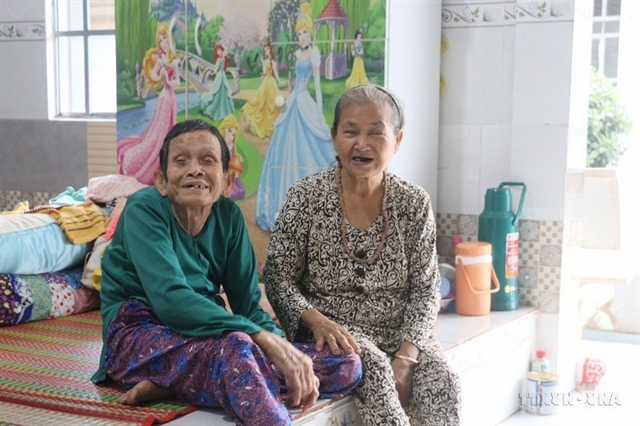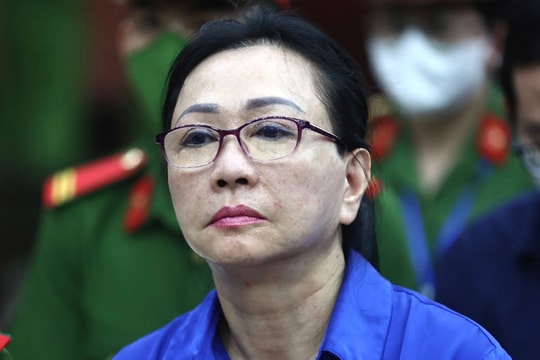 |
| Elderly people at a community home in the southern province of Vĩnh Long. — VNA/VNS Photo Lê Thúy Hằng |
HÀ NỘI — With an average elderly person having three chronic diseases and at risk of functional decline, building a strong foundation for healthcare and quality of life for the senior population becomes the responsibility of not only the Government but the entire society.
Vietnamese people’s life expectancy now stands at 73.6, but their healthy years are only until 63.2 for men and 70 for women, according to the World Health Organisation.
This means that older men and women spend up to 11 years living with illnesses.
Statistics also revealed that nearly 46 per cent of the senior population is diagnosed with hypertension, 34 per cent of them have arthritis and many others suffer from cardiovascular diseases, bronchitis, urinary diseases or musculoskeletal disorders.
As a result, instead of enjoying their retirement, they have to spend most of their time visiting hospitals.
Their health also naturally deteriorates as they age, including their immune system. Therefore, they are more susceptible to acquiring diseases which often turn chronic or recurrent.
At 68, Hoàng Văn Thanh still works as a motorbike taxi driver in Hà Nội, making around VNĐ50,000-100,000 (US$2-4) a day.
His wife, 65, also works as an hourly housekeeper for several households in the city, but suffering from low blood pressure means she often has to take days off.
They make enough to cover their food expenses and rely on their children for the rest.
While more fortunate with their pensions, some elderly have to spend a large portion of their pensions on regular check-ups and medications, meaning they have to tighten their belt on living expenses.
Dr Phạm Vũ Hoàng, deputy director general of the General Office for Population and Family Planning (under the Ministry of Health), said that the current healthcare system has not kept pace with the growing needs of the elderly.
Most elderly people in the country live with their families and wish to be cared for at home by their children or relatives. However, Việt Nam’s prevalent family model is shifting from the traditional extended households (families with three or more generations living together) to nuclear families (two generation families including parents and children).
Caregivers for the elderly at home are other people in the senior population group, many of them women.
Developing elderly-friendly spaces and long-term healthcare services within communities also faces multiple challenges and requires much more effort.
Multiple changes have been made to population management and related policies in response to the current context.
The sixth National Congress of the 12th Party Central Committee set the goals in its Resolution No 21-NQ/TW to “comprehensively and cohesively address issues related to population size, structure, distribution and quality in alignment with socio-economic development.”
To realise this resolution, the Government has assigned 39 projects and missions to 11 ministries and departments in Resolution No 137/NQ-CP. Many of them are in direct response to an ageing population, such as the Việt Nam Population Strategy to 2030, the Healthcare Programme for the Elderly to 2030, the Project on Taking Advantage of the Golden Population and Adapting to Population Ageing, as well as the National Action Programme for the Elderly.
The nationwide health insurance programme, in which senior citizens can enjoy insurance benefits at a discounted premium or free of charge, facilitates their access to healthcare services, especially those living in disadvantaged areas.
Elderly people without pensions or who have low incomes are given welfare assistance, while public nursing homes are under development to provide care and accommodation for those without families.
Việt Nam is making efforts to improve the quality of life for the elderly, but better results require strong coordination between the Government, social organisations and the community. — VNS

























